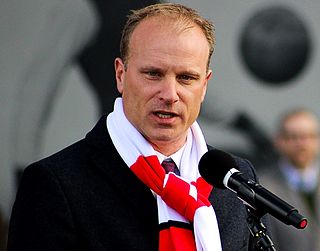A Quote by Karen Armstrong
Well, logos is science or reason, something that helps us to function practically and effectively in the world, and it must therefore be closely in tune and reflect accurately the realities of the world around us.
Related Quotes
I have an abiding interest in how ordinary people produce knowledge, and what it means for individuals to know the world. I thought I'd be a theoretical physicist because I love physicists' views of the world - I find general relativity and quantum theory thrilling - but I have always felt uneasy with the idea of an Ultimate Truth. One of the functions of science is to help us instrumentally; it helps us to build things like microchips and GPS satellites. But another function of science in the modern world is to help us feel "at home in the universe".
I think architecture could be understood as the construction of realities, or the construction of worlds. One of the reasons why architects are often attracted to philosophers, partially, has to do with making sense of the world around us as well as the making of worlds, and in our case, the realities we create can be as real as concrete. These kinds of ideas, of wild imagination, go into the question of how you make a world.
People knew there were two ways of coming at truth. One was science, or what the Greeks called Logos, reason, logic. And that was essential that the discourse of science or logic related directed to the external world. The other was mythos, what the Greeks called myth, which didn't mean a fantasy story, but it was a narrative associated with ritual and ethical practice but it helped us to address problems for which there were no easy answers, like mortality, cruelty, the sorrow that overtakes us all that's part of the human condition. And these two were not in opposition, we needed both.
When I was a child, we seemed to be living in a world remote from the rest of the world. But television has made a great difference to all of us. If something happens where I live, you see it tomorrow or perhaps even at the same time it is happening there. It's not "one world" in the sense that conflicts are resolved in the world. But we are more one world in that we know what is going on and are psychologically influenced by what goes on around us.
Only one same reason is shared by all of us: we wish to create worlds as real as, but other than the world that is. Or was. This is why we cannot plan. We know a world is an organism, not a machine. We also know that a genuinely created world must be independent of its creator; a planned world (a world that fully reveals its planning) is a dead world. It is only when our characters and events begin to disobey us that they begin to live.
There are three musts that hold us back: "I must do well. You must treat me well. And the world must be easy." And I sometimes think that as long as we keep the second must, which is socially learned, then some screwballs 100 years from now will manufacture atomic bombs in their bathtub and maybe annihilate the whole human race because they demand that the rest of the world must agree with their dogmas. When we don't agree, they may zap us.
Immigrants to America help us with the work they do. They challenge us with new ideas, and they give us perspective. This is still the nation that more people around the world want to come to than any place else. That has to tell us something about ourselves. If around the world this is the place people want to come to so much, maybe there's more here than many of us realize-and that many of us can take advantage of.
We have failed...through our lack of responsible awareness...and thus added to suffering around the world. All of us are cripples-some physically, some mentally, some emotionally. We must, therefore, strive cooperatively to create a new world. There is no time left for destruction, for hatred, for anger. We must build, in hope and joy and celebration.
The primary function of poetry, as of all the arts, is to make us more aware of ourselves and the world around us. I do not know if such increased awareness makes us more moral or more efficient. I hope not. I think it makes us more human, and I am quite certain it makes us more difficult to deceive.




































